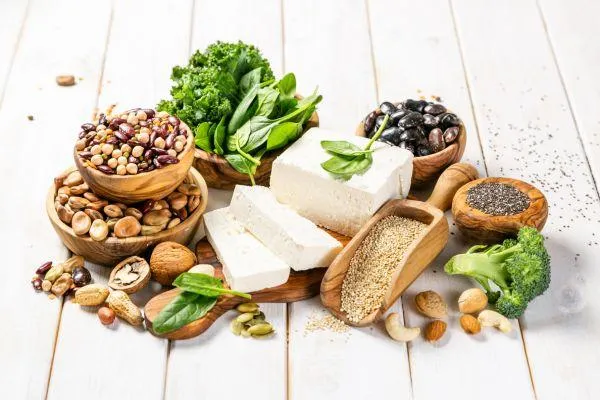The Cormier Way
A Healthy Living Blog

5 Nutrient-Packed Plant-Based Protein Sources
In recent years, the popularity of plant-based diets has soared, and for good reason. Not only do they offer numerous environmental benefits, but they also provide a plethora of health advantages. One key aspect of a balanced plant-based diet is getting an adequate amount of protein, which is essential for maintaining muscle mass, supporting various bodily functions, and promoting overall well-being. Protein also promotes feelings of fullness, thus aiding in weight management. If you're considering or already following a plant-based lifestyle, it's essential to explore diverse plant-based protein sources to ensure you meet your nutritional needs. It is way too easy to under-consume protein when you decide to forego animal protein sources. In this post, you'll be introduced to five fantastic plant-based protein sources and their nutritional benefits.
Lentils

Lentils are an excellent source of plant-based protein, boasting approximately 18 grams of protein per cup when cooked. These tiny legumes are not only rich in protein but also packed with dietary fiber, iron, and various essential vitamins and minerals. Lentils are versatile and can be incorporated into soups, stews, salads, and even veggie burgers. Their protein content, combined with their high fiber content, makes them perfect for maintaining stable blood sugar levels and promoting digestive health.
Quinoa

Often referred to as a "complete protein," quinoa provides all nine essential amino acids, making it a standout among plant-based protein sources. A one-cup serving of cooked quinoa contains approximately 8 grams of protein, along with a wealth of nutrients like magnesium, manganese, and phosphorus. Quinoa can be used as a base for salads, mixed with vegetables, or even enjoyed as a warm breakfast cereal. Its nutty flavor and versatility make it a favorite among plant-based eaters.
Chickpeas

Chickpeas, also known as garbanzo beans, are a staple in many plant-based diets. A cup of cooked chickpeas provides around 15 grams of protein, making them a protein-packed powerhouse. Beyond protein, chickpeas are loaded with dietary fiber, folate, and manganese. They are incredibly versatile and can be used to prepare hummus, roasted for a crunchy snack, or tossed into salads for an extra protein boost.
Tofu

Tofu, or bean curd, is a well-known plant-based protein source. Made from soybeans, tofu is incredibly versatile and can take on various flavors and textures depending on how it's prepared. A 4-ounce serving of tofu contains approximately 9 grams of protein, along with essential minerals like calcium and iron. It's perfect for stir-fries, scrambles, or marinating and grilling for a tasty, protein-rich dish.
Spinach

Leafy greens like spinach may not be the first thing that comes to mind when thinking of protein sources, but they are surprisingly rich in this essential nutrient. A cup of cooked spinach contains about 5 grams of protein, in addition to being a great source of vitamins A and K, as well as folate and iron. Spinach can be used in salads, smoothies, or sautéed as a side dish to complement your plant-based meals.
Transitioning to a plant-based diet doesn't mean sacrificing your protein intake. These five plant-based protein sources are just a few examples of the abundant options available to you. Incorporating these nutrient-packed foods into your meals will not only help you meet your protein needs but also provide a range of essential vitamins and minerals while helping to minimize your risk for developing chronic disease. So, whether you're a seasoned plant-based eater or just starting your journey, these protein sources will keep your meals delicious, nutritious, and satisfying. Yum!

FOLLOW
Angela Cormier
Fitness TCW
SUBSCRIBE
The Cormier Way
FREE
DISCOVERY
QUIZ:
Discover your perfect program based on your unique fitness goals and struggles.
FREE MASTERCLASS:
Learn the secrets to getting fit AND STAYING FIT through the ups and downs of life.


